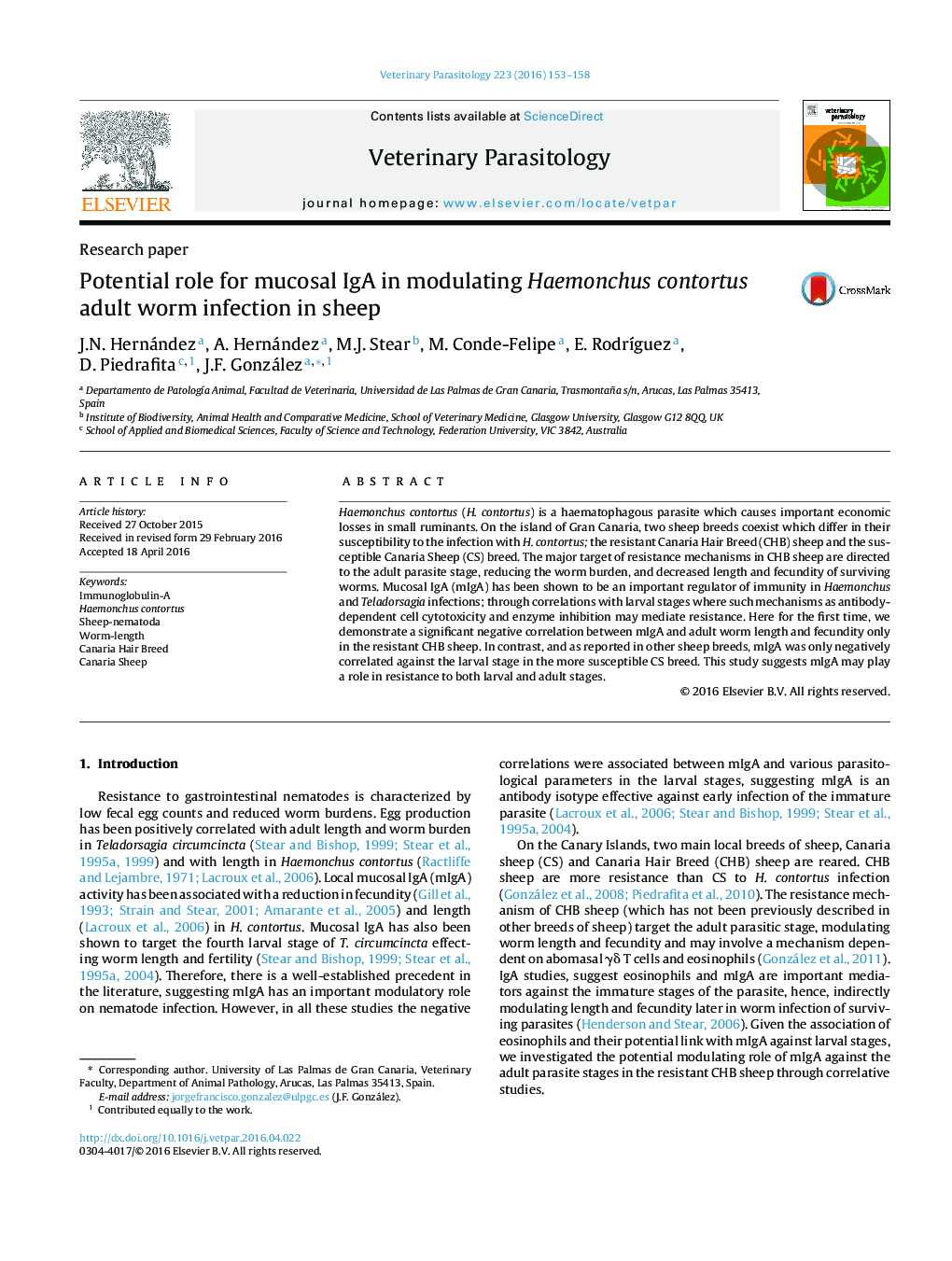| Article ID | Journal | Published Year | Pages | File Type |
|---|---|---|---|---|
| 2469791 | Veterinary Parasitology | 2016 | 6 Pages |
•The Canaria Hair Breed (CHB) sheep is a resistant breed which targets the adult Haemonchus contortus parasitic stage.•Negative correlations between mucosal IgA and adult worms were only detected in CHB sheep not in the susceptible Canaria sheep (CS).•Conversely, a negative correlation between mIgA and larvae was only detected in susceptible CS.•Mucosal IgA may play a differential role in parasite modulation of larval and adult stages in CHB sheep and CS.
Haemonchus contortus (H. contortus) is a haematophagous parasite which causes important economic losses in small ruminants. On the island of Gran Canaria, two sheep breeds coexist which differ in their susceptibility to the infection with H. contortus; the resistant Canaria Hair Breed (CHB) sheep and the susceptible Canaria Sheep (CS) breed. The major target of resistance mechanisms in CHB sheep are directed to the adult parasite stage, reducing the worm burden, and decreased length and fecundity of surviving worms. Mucosal IgA (mIgA) has been shown to be an important regulator of immunity in Haemonchus and Teladorsagia infections; through correlations with larval stages where such mechanisms as antibody-dependent cell cytotoxicity and enzyme inhibition may mediate resistance. Here for the first time, we demonstrate a significant negative correlation between mIgA and adult worm length and fecundity only in the resistant CHB sheep. In contrast, and as reported in other sheep breeds, mIgA was only negatively correlated against the larval stage in the more susceptible CS breed. This study suggests mIgA may play a role in resistance to both larval and adult stages.
